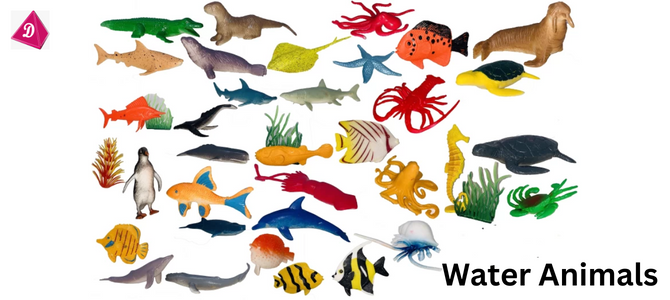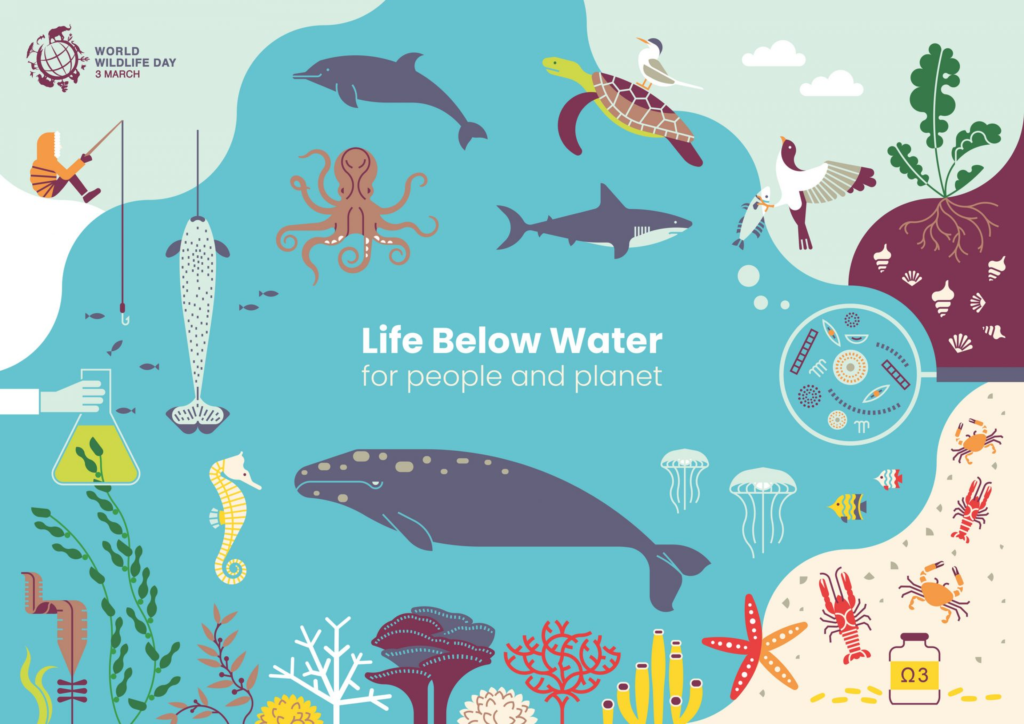Water Animals
key notes:
Definition of Water Animals

- Animals that live in or near water bodies like oceans, rivers, lakes, or ponds.
- Examples: fish, dolphins, whales, crabs, and turtles.
Types of Water Animals
- Freshwater Animals: Live in rivers and lakes (e.g., frogs, goldfish).

- Saltwater Animals: Live in oceans and seas (e.g., sharks, octopuses).

How Water Animals Breathe

- Some use gills to breathe underwater (e.g., fish).
- Others come to the surface to breathe air (e.g., dolphins, whales).
How They Move
- Fins and Tails: Help fish and dolphins swim.
- Flippers: Help animals like turtles and seals move in water.
Importance of Water Animals

- Maintain the balance of aquatic ecosystems.
- Provide food for humans (e.g., fish, crabs).
- Offer beauty and recreation (e.g., coral reefs, dolphin shows).
Adaptations of Water Animals
- Streamlined bodies for easy swimming.
- Camouflage to hide from predators.
- Special skin or scales to withstand water pressure.
Famous Water Animals
- Dolphins: Intelligent and friendly.

- Whales: Largest animals in the world.

- Octopuses: Known for their eight arms and intelligence.

Fun Facts
- A jellyfish has no heart or brain.
- Starfish can regenerate their arms.
- Some fish can glow in the dark (bioluminescence).
Let’s practice!🖊️

